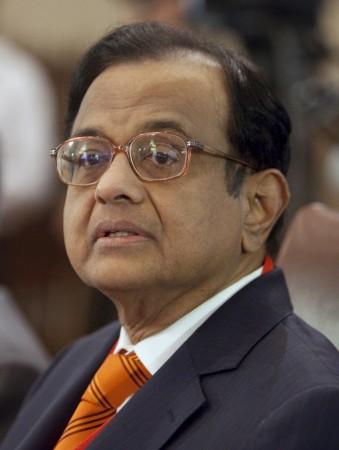
Home Minister P Chidambaram, speaking at the Chief Ministers' meeting on National Counter Terrorism Centre (NCTC) on Saturday, said that checking terrorism in the country was a "shared responsibility of the State and Centre government."
Batting for the introduction of the proposed NCTC, Chidambaram emphasised the necessity of such an anti-terrorism institution in the country, which has been a constant target of terrorists and other home-grown extremists.
"The Unlawful Activities (Prevention) Act was passed by Parliament in 1967. No one has questioned the validity of the Act. After the horrific attacks in Mumbai on November 26, 2008, there was a universal demand for strengthening the laws dealing with terrorism. Since Parliament was in session, it was decided to act without loss of time," he said.
"All political parties joined together and unanimously passed two legislations, Act 34 of 2008 which is the National Investigation Agency Act and Act 35 of 2008 to amend the Unlawful Activities (Prevention) Act," Chidambaram said.
"In amending the UA(P)A, Parliament was mindful of its obligations not only to the people of India but to the international community as well," Home Minister said.
"The preamble to the UA(P)A was amended and a reference was made to Resolution 1373 and other Resolutions of the Security Council requiring all Member States to take measures against terrorists and terrorist organisations and to the Prevention and Suppression of Terrorism (Implementation of Security Council Resolutions) Order, 2007," he said.
Chidambaram said the National Counter Terrorism Centre (NCTC) will be an important pillar of the new security architecture.
"Given that India's 7516 km coastline, 15,106 km of international borders with seven countries (Afghanistan, Pakistan, Nepal, Bhutan, China, Bangladesh and Myanmar) and a number of international gateways, State Anti-Terrorist Forces would have to necessarily work with a number of agencies of the Central Government, especially when there are threats in the domain of sea, air and space," he said.
Chidambaram termed terrorism emerging in cyber space as the fifth domain after land, sea, air and space.
"Much of our critical infrastructure lies in cyber space. Cyber crimes such as hacking, financial fraud, data theft, espionage etc. would, in certain circumstances, amount to terrorist acts," he said.
"Our counter terrorism (CT) capacity must be able to meet the threats in cyber space. Since there are no boundaries in cyber space, how will the Central Government and the State Governments share the responsibility to face the threats in cyber space?" Chidambaram questioned.
"We have circulated two Standard Operating Procedures (SoPs). One deals with the functions and powers of the Standing Council and the other deals with the Operations Division of the NCTC," he said.
"I sincerely hope that the two SoPs would address all the concerns raised by some Chief Ministers in their letters to the Prime Minister and the issues flagged by the Directors General of Police at the meeting convened by the Home Secretary on March 12, 2012," he added.
NCTC, which is a pet project of Chidambaram, was supposed to go live last February. However, the Congress-led UPA government decided to refrain from executing the anti-terrorism agency across the various states for a while owing to protests from many Chief Ministers, including West Bengal Chief Minister Mamata Banerjee, a key ally of UPA.
Centre's NCTC proposal drew flak from various CMs across the nation as they perceived it as an attack on federalism.
Mamata Banerjee and other chief ministers like Tamil Nadu CM Jayalalithaa, Odisha CM Naveen Patnaik, Bihar CM Nitish Kumar, Madhya Pradesh CM Shivraj Singh Chouhan, Gujarat CM Narendra Modi, Himachal Pradesh CM Prem Kumar Dhumal and Chhattisgarh CM Raman Singh have opposed the NCTC.
NCTC purportedly is the best way forward to tackle terrorism. Since India has borne the brunt of terrorism numerous times in the past, the government believes that this institution will effectively contain extremism.
In an attempt to arrive at an accord with the striking Chief Ministers on NCTC, Prime Minister Manmohan Singh Saturday chaired a day-long meeting in New Delhi, which is underway.
(With inputs from IBNS)

















